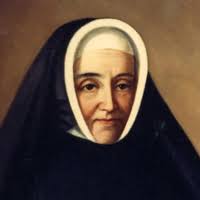HOMILY EASTER SEASON WEEK 03 04 – Year II
On Being Missionary Disciples:
Optional Memorial of Blessed Marie-Anne Blondin
(Acts 8:26-40; Ps 66; Jn 6:44-51)
*********************************************
Do you see yourself as a missionary disciple? That is what Pope Francis challenges us to be constantly.
In today’s first reading, Philip can serve as a model for us. His missionary activity presents four key elements: faith in Jesus Christ; attentiveness to the Holy Spirit, knowledge of scripture, and the courage to proclaim the good news of Jesus risen from the dead.
In his challenge to be missionary disciples, Pope Francis insists the first step is a personal encounter with Jesus Christ. He even tells seminarians to postpone their ordination if Jesus is not the center of their lives. We see in the first reading the Ethiopian eunuch comes to believe that Jesus is the Son of God. In the gospel Jesus reminds us he is the Bread of Life and the source of eternal life.
Over the years my faith in Jesus has come to be expressed in this way: “Lord Jesus Christ, totally receptive to the Father’s love; humble, obedient, pure and faithful in response to that love; Son of God, Son of Man, Son of David; Savior, Redeemer, Word made flesh; sinless one, free from addiction, the Way, the Truth, the Life; the resurrection, suffering servant, crucified Messiah, sacrificial victim, risen Lord, victorious king.”
The next element for Philip was attentiveness to the Holy Spirit, directing him south to the road to Gaza and then to get into the chariot of the eunuch. When I was visiting years back on First Nations communities as a missionary Oblate priest, I would travel to the community praying to the Holy Spirit to guide me to the houses that I should visit, and twice that landed me right into the middle of couples having heated fights that I ended up refereeing to a peaceful conclusion.
Over the years, my prayer to the Holy Spirit has become: “Holy Spirit, giver of life, bond of love between the Father and the Son, life-giving creative Holy Spirit, agent of forgiveness, giver of gifts, source of all life and love, exousia, dunamis, and pneuma of the Father.”
The third element that Philip portrayed was knowledge of the scriptures. When the Ethiopian questioned him about a passage in the prophet Isaiah, Philip had no hesitation climbing aboard and explaining to him all the prophecies that were about Jesus, much as Jesus himself did to the disciples on the road to Emmaus. Philip was especially able to identify the mysterious “suffering servant” of Isaiah 53 as Jesus the crucified Messiah. We need to be familiar with the bible so that we also can connect scripture to the reality of everyday life.
The last element Philip demonstrated was the courage to proclaim the good news, not just to the Ethiopian, but also to “all the towns until he came to Caesarea.” That is perhaps the most challenging element for us – having the courage to share our knowledge of scripture and our experience of Jesus Christ with others.
I personally try to do that especially through presentations on addictions awareness integrating Christian, 12 Step and Indigenous spirituality, revealing the Exodus Journey and Paschal Mystery Experience as central to the 12 Step program. I also find that biblical art is very effective in proclaiming the good news.
The Ethiopian eunuch symbolizes God’s desire, I believe, for the world’s religions. He believed in the God of the Jewish people and had worshipped in the temple, which involved animal sacrifice, separated people from the Holy of Holies by means of a great curtain. His openness to understand the prophecies about a suffering servant of God led him to faith in Jesus as that suffering servant who fulfilled all the prophecies about himself in the Old Testament. His whole belief system came to full maturity – now instead of offering animal sacrifice to a distant God, he had a personal intimate relationship with God who was Father, Son and Holy Spirit dwelling within him. No wonder he went on his way rejoicing after Philip was snatched away by the Spirit!

Blessed Marie-Anne Blondin
The Church honours today someone who caught this truth and ran with it – Blessed Marie-Anne Blondin. According to the Living With Christ, she was born in 1809 in what is now a suburb of Montreal as Esther Blondin. She learned to read and write at age 22 while working as a domestic for nuns. Two years later, she started teaching in Vaudreil.
In 1850, with the permission of Bishop Bourget, she founded the Congregation of the Sisters of St. Anne for the education of poor boys and girls together – a radical idea at that time. While the congregation thrived, she endured opposition and obstruction from the local clergy (hopefully we can learn a lesson from this, not to resist the prophets in our midst). Forbidden to lead her sisters, she nevertheless remained the spiritual mother of her congregation. Sister Marie-Anne died in 1890, devoted to Christian education to the end. She was vindicated by her beatification in 2001.
The Eucharist is a great act of faith, and our own encounter with the Risen Lord, through his Word, and his Body and Blood. Let us pray as we celebrate that our personal experience of Jesus may grow stronger, our attentiveness to the Spirit be keener, our knowledge of scripture continue to deepen, and our courage to go out and proclaim the good news become like Philip’s.



